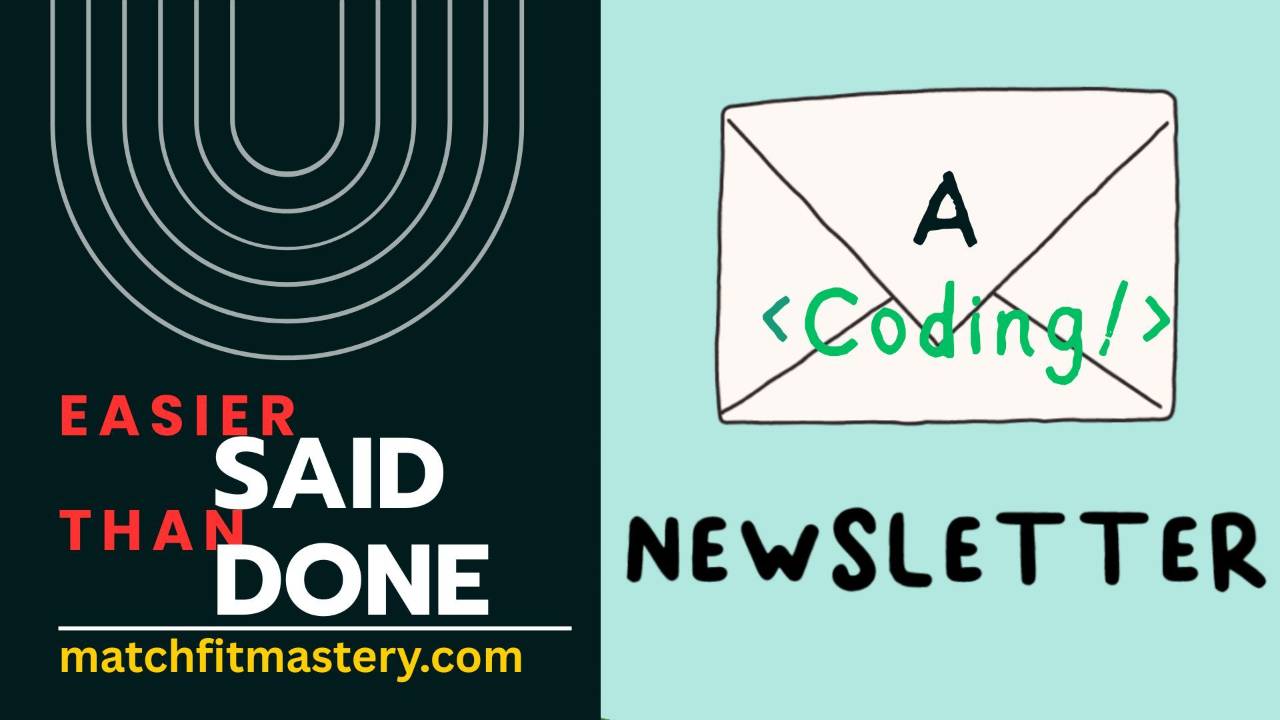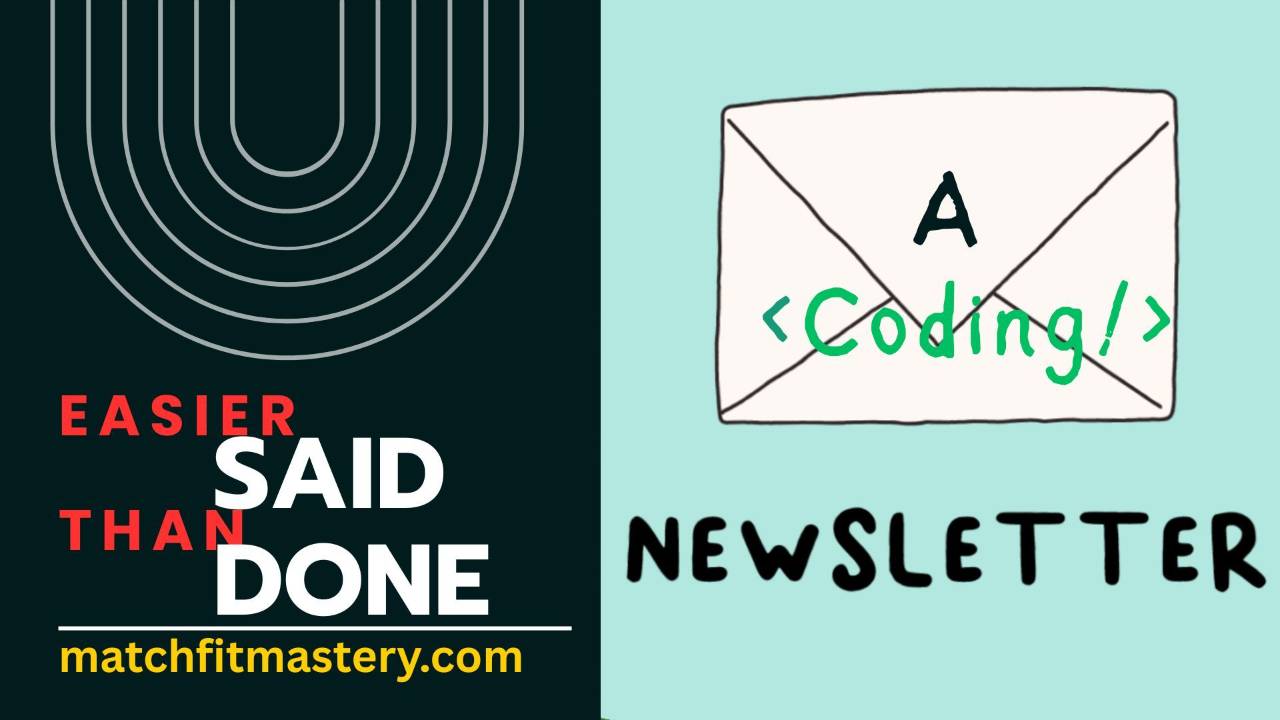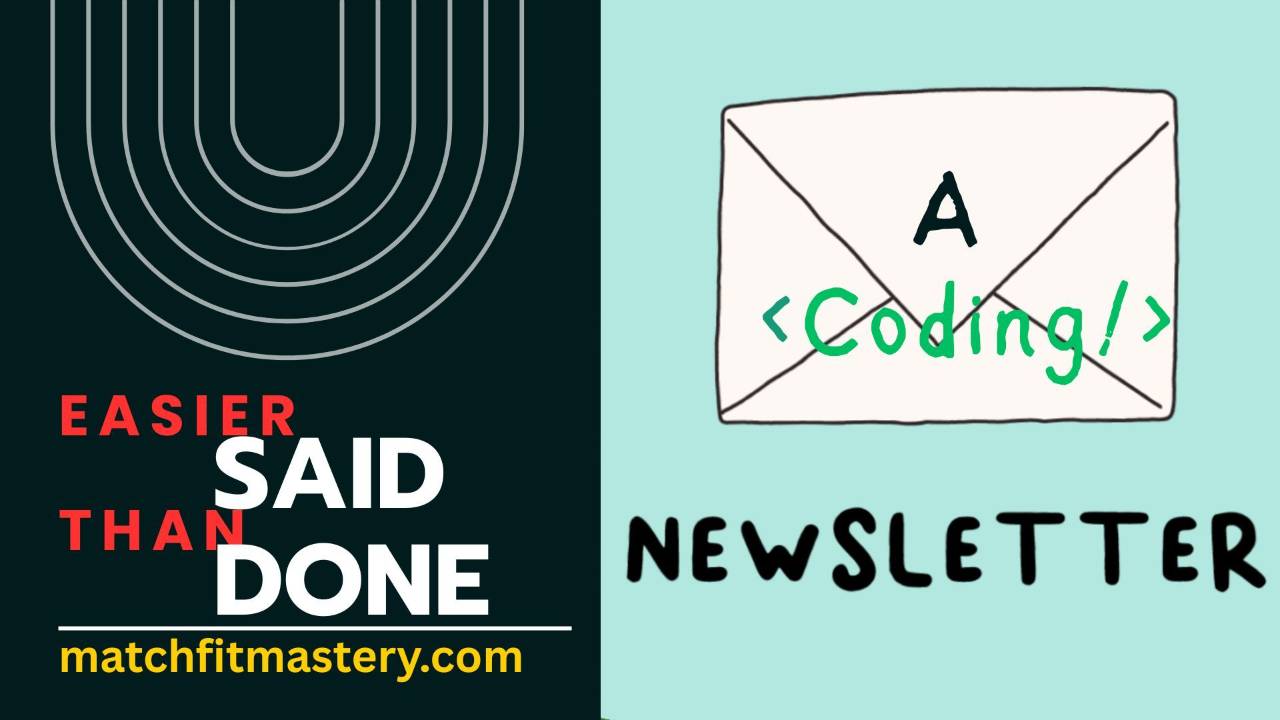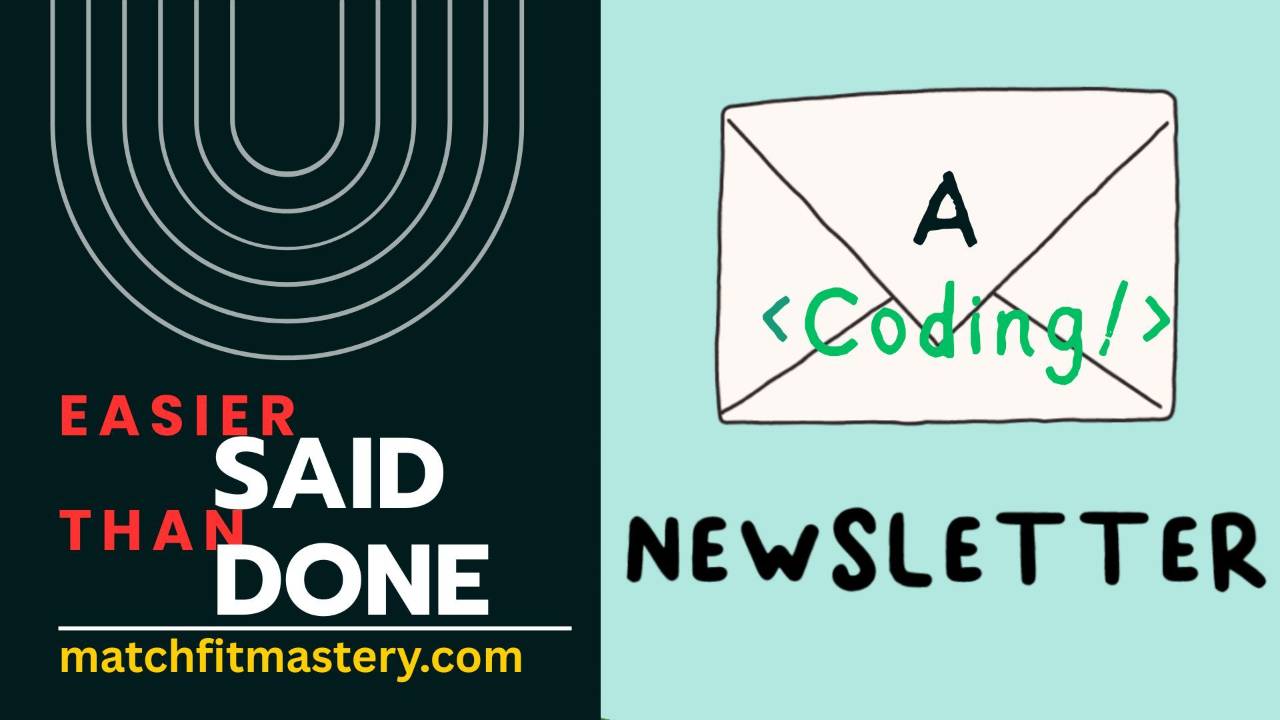From Lawyer to Google: How to Learn Coding and Actually Land a Tech Job
I’m going to show you how to succeed in learning to code even if you’re a busy mid-career professional.
You know coding bootcamps are expensive. They’re rushed. They don’t offer guidance tailored to your goals. They’re generally taught by students who haven’t found jobs. And the career services folks have never changed career themselves - but will advise you on how to do it.
So you're cobbling together free resources. YouTube tutorials, online courses, maybe a freeCodeCamp certificate.
But are you really making progress?
Sure. You’re saving money. But is spending time going to help you beat the competition especially if they’re a lot younger than you?
Or are you just accumulating knowledge without building anything real?
These are the big questions I found myself asking after years of struggling and not making progress.
At 32 it was hard. At 37 it seemed insane.
Here's the truth: Employers don't care about your certificates. They care about what you can do. They want to see one or two sophisticated projects. Almost like products. But not just theory.
They want to know you can solve problems, not just follow instructions.
But…
They also want to know you’re going to fit in. And that includes in terms of how you’ll cope with a manager and colleagues that are many years younger than you.
This is why saving money may sometimes be the wrong thing to do if you’re over 30 and competing with 25 year olds.
Yes everyone knows that learning to code can unlock six-figure salaries, remote flexibility, and the chance to work on projects that matter.
I’ve done it myself. But the coding was the easy part.
Unfortunately, there is another deeper trap.
Most people waste months (or years) chasing free tutorials and certifications that never lead to jobs. Because most professional engineers dont have a ton of certifications, certifications often signal that you’re a noob! If you’re trying to show ability….well…it has the opposite effect. Here’s data that backs up this observation.
The Hidden Cost of “Free”
The number one reason people fail with “free resources” is they confuse “free” with “effective.”
Here are four more reasons many aspiring career changers stay stuck:
-
Reason #1: They keep switching between tutorials and never build depth in one language. This is more likely to happen when things are free because there is no “skin in the game”/
-
Reason #2: They focus on theory instead of building real projects employers care about. This is a HUGE risk for learning from the internet for free because after 30+ years of the internet there are TONS of useless and outdated things and a bazillion rabbit holes that lead no where.
-
Reason #3: They assume certifications impress hiring managers (it’s the opposite. Certifications are a warning flag)
-
Reason #4: They try and skip steps and pole-vault into their “dream” job instead of first getting a great role for early learning and then getting paid to learn the next level of stuff to get closer to their dream job.
-
Reason #5: They underestimate the income they’re losing by delaying their career transition. Imagine saving $15,000 but delaying your dev job by 2 years. How much money could you have made in those 2 years?
But there’s good news: you can avoid these traps and still learn coding for free while making real progress.
And most importantly you MUST do this without quitting your job (your income). That way you can use your job to fund your education in code and you are not unemployed when looking for your first dev job. Why would a hiring manager consider a career changer who is also unemployed? Not a good look.
Remember - slow and steady wins the race. If you’re moving in the right direction.
The information is free. Always has been. But what’s much harder and rarer is being disciplined about direction and tuning out the noise.
Here’s how, step by step:
Step 1: Pick ONE resource and commit to it.
Consistency beats variety. Choose one language that is well suited for your target job and stick with it for at least 250 hours. The key thing here is to be sure that it is the language that is in-demand in your target market and increases the odds of you getting your first (not your ideal) engineering role.
Step 2: Build projects, not just knowledge.
Most people fall into “tutorial hell”—watching videos but never creating anything. Employers don’t hire people who watched tutorials; they hire people who built things.
Start with small projects like a to-do app or portfolio site, host them on GitHub, and make them your calling card.
One of my clients built a budgeting app for teenagers—and that single project attracted multiple job offers. It was built for their nephew. A personal story, a well understood problem, motivation, and a small userbase made them stand apart.
It was useful and the knowledge came along for the ride. The key here is to build things in a way that mimic real world product development - because some of the hardest problems are not coding problems but engineering choices and design decisions.
Step 3: Network early—don’t wait until you feel “ready.”
Your skills alone won’t land you a job—relationships will. Start connecting with recruiters on LinkedIn, join online coding groups, and attend virtual meetups.
Some of our students in the Inner Circle Program have been teaching coding topics to coding meetups and landed their first opportunities by showing they could do the work before they were hired to do the work.
Imagine the courage it takes to do that ! Of course this only works if you’ve done step 1 and step 2 perfectly.
It’s not easy. It’s not obvious. And it requires focus.
But if you stick to this framework, then it’s no longer a question of IF…it becomes purely a question of when. You get massive results. Period.
Five ways we can help you:
1. Wondering what learning to code actually means?
Becoming a coder is much more than just "learning to code" some languages. When I got hired at Google, for example, I didnt know 3 out of the 4 languages I had to write every day.
If you're still wondering if coding is right for you then I recommend:
👉 My FreeCodeCamp Course --> Before You Learn To Code (Video).
👉 Updated version (including Google and other big tech experiences)
2. Inner Circle (Free Preview Included)
Our personalized, intensive mentorship program designed to help career changers go from zero to software developer—and actually get hired. It’s not for everyone, but if you’re ready to commit, we’ll walk with you every step.
👉Preview the Inner Circle Program -> free preview.
👉Apply for Inner Circle → parsity.io/inner-circle
3. Dev30
Want to learn the basics, but not quite ready for the Parsity Inner Circle? No problems - Try the Dev30 challenge!
It’s our 30-day JavaScript sprint focused on building real projects, learning in public, and creating a network in tech.
👉Join dev30 → dev30.xyz
4. Career Change To Code Podcast
Driving? At the gym? Hiding in the bathroom? Perfect time to inject the best techniques for a career change to code directly into your brain via
👉 Follow the podcast here: YouTube | Spotify
5. Weekly Tips In Your Inbox
👉 Subscribe to this newsletter (it’s free). I try and keep it to 3 minutes or less so you can read in the elevator, waiting in lines, in the bathroom...😝





